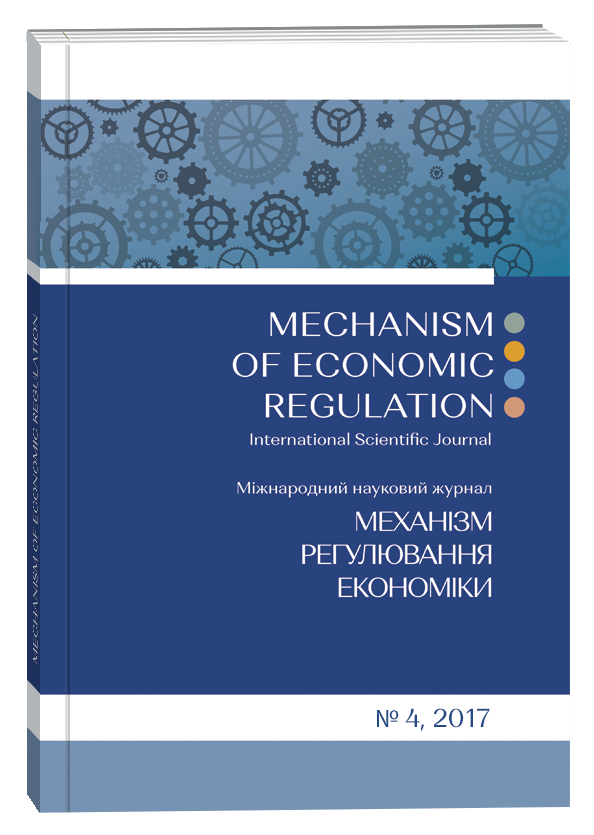ЕКОНОМІЧНІ, ЕКОЛОГІЧНІ ТА СОЦІАЛЬНІ ВИКЛИКИ НАУКИ У ДОСЯГНЕННІ ЦІЛЕЙ СЕСТЕЙНОВОГО РОЗВИТКУ: ЄВРОПЕЙСЬКИЙ ТА СВІТОВИЙ ДОСВІД
Анотація
У статті аналізуються економічні, екологічні та соціальні виклики науки у досягненні цілей сестейнового розвитку з урахуванням європейського та світового досвіду. Розглядається проблематика наукових досліджень трьох глобальних взаємопов'язаних сфер: енергетика та зміна клімату, продовольче забезпечення та вода, бідність та соціальна справедливість. Аналізується проблематика наукових досліджень щодо розробки нових методів оптимізації довгострокового економічного зростання, ролі науки у особистісному розвитку в рамках освітнього процесу, зв’язку науки та продовольчої безпеки, розвитку альтернативних джерел енергії, штучного інтелекту та цифрових змін. В статті також представлений мотиваційний інструментарій для реалізації цілей сестейнового розвитку та подолання екологічних викликів на глобальному, регіональному, національному та місцевому рівнях.
Посилання
Weizsäcker, E., Lovins, E., Lovins, L. (2013). Faktor pyat’. Formula ustoichivogo rosta. Doklad Rimskomu klubu [Factor five. The formula for sustainable growth: report of the Club of Rome], AST-PRESS KNIGA.
Weizsäcker, E., Lovins, E., Lovins, L. (2000). Faktor chetyre. Zatrat – polovina, otdacha dvoynaya. Novyy doklad Rimskomu klubu [Factor four. Cost – half double returns. A new report by the Club of Rome]. Moskva: Academia.
Odum, H., Odum, E. (1978). Energeticheskiy bazis cheloveka i prirody [Energetic basis of man and nature]. Moskva: Progress.
Perelet, R. (2007). Ponyatie silnoy i slaboy ustoychivosti sotsialno-ekonomicheskogo razvitiya [The concept of strong and weak sustainability of socio-economic development]. In L. Melnyk & L. Hens (Ed.), Sotsialno-ekonomicheskiy potentsial ustoychivogo razvitiya [Social and economic potential of sustainable development] (pp. 162–164). Sumy: Universitetskaya Kniga.
A Guide to SDG Interactions: from Science to Implementation (2017). International Council for Science.
Bloen, J., van Doorn, M., Duivestein, S., Excoffier, D., & van Ommeren Maas, E. (2014). The Fourth Industrial Revolution Things to Tighten the Link Peltween IT and OT. Groningen: Sogeti VINT.
Book of Japan’s Practices for SDGs – Creating shared values by STI, Business and Social Innovation – Preliminary Edition. (Fall 2017). Tokyo: Japan Science and Technology Agency.
Daly, H. (2004). Ecological economics: principles and applications. Washington: Island Press.
Harnessing Modern Agricultural Biotechnology for Africa’s Economic Development (2015). Nairobi: Network of African Science Academies (NASAC).
Ideas for Action for a Long-Term and Sustainable Financial System. (2017). London: Business and Sustainable Development Commission.
Kabat, P. (2016). Working in concert for a sustainable future. Making the change. Options. Luxemburg: IIASA.
Klingebiel, S., & Sebastian, P. (2015). Orchestration: an instrument for implementing the Sustainable Development Goals. Briefing Paper 14. Retrieved from https://www.die-gdi.de/en/briefing- paper/article/orchestration-an-instrument-for-implementing-the-sustainable-development-goals/.
Nelissen N., J. Van der Straaten, & L. Klinkers (1997). Classics in environmental studies: An overview of classic texts in environmental studies. The Hague, The Netherlands: International Books.
Nilsson, M., Griggs, D., Visbeck, M., Ringler, C., & McCollum, D. (2017). A framework for understanding sustainable development goal interactions. In A Guide to SDG Interactions: from Science to Implementation. International Council for Science, 19–30.
Open to the world. Research and innovation across borders. (2017). Luxemburg: Publication Office of the European Union.
Promoting inclusion through science education, outreach and engagement World Science Forum. (2017). Programme. Amman: Royal Scientific Society.
Research for a changing world. IIASA highlights 2011–2015. (2009). International institute for applied systems analysis. Vienna: Rema.
Research for a changing world. IIASA highlights 2011–2020. (2009). International institute for applied systems analysis. Vienna: Rema.
Rojelj, J. (2013). Earth science. A holistic approach to climate targets. Nature, 499(7457), 160–161.
Steininger, K. W., Lininger, C., Meyer, L. H., Munoz, P., Schinko, T. (2016). Multiple carbon accounting to support just and effective climate changes. Nature Climate Change, 6 (1), 35–41.
Sustainable development goals. (2017). Retrieved from http://www.un.org/sustainabledevelopment/sustainable-development-goals/.
The Declaration of the 8th World Science Forum on Science for Peace. 8th World Science Forum (7–10 November 2017). Retrieved from https://worldscienceforum.org/contents/declaration-of- world-science-forum-2017-110045.
World Science Forum 2017, Jordan – Science for Peace. (2017). Retrieved from https://www.ctbto.org/press-centre/highlights/2017/world-science-forum-2017-jordan-science-for-peace/.


